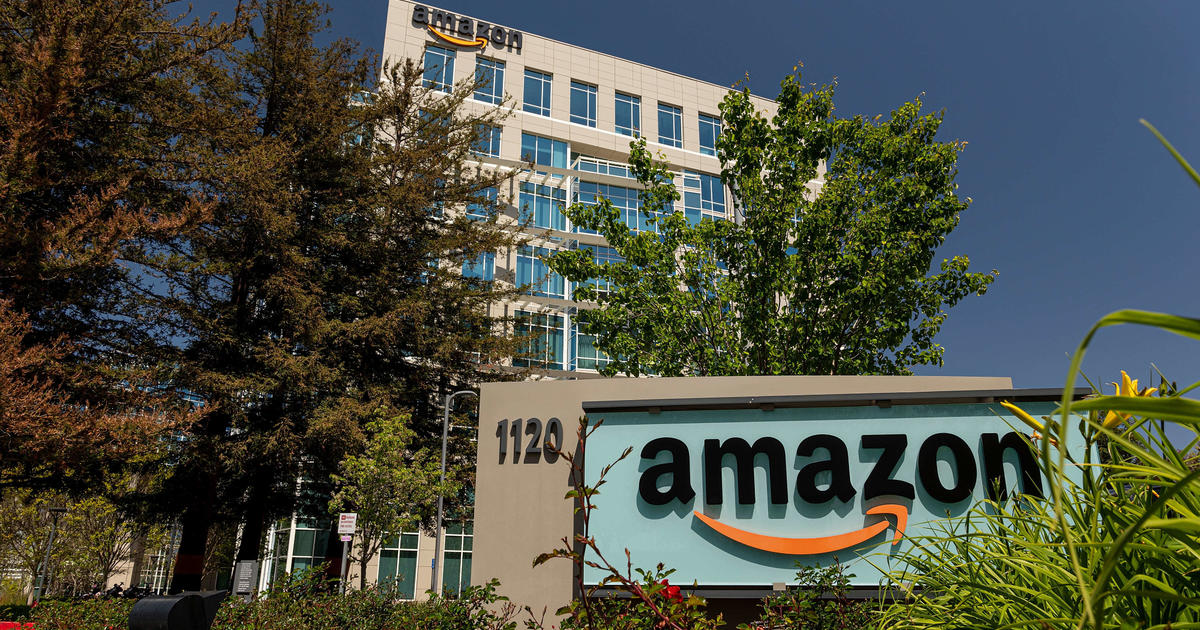
Amazon is more than doubling its maximum base pay to $350,000 for some corporate and tech employees, citing increased competition for tech talent.
According to an internal memo, first reported by GeekWire, the tight labor market is pushing Amazon to raise corporate workers’ pay higher and faster than it typically would.
The company said it is “increasing overall compensation ranges for most jobs globally, and the increases are much more considerable than we’ve done in the past,” according to GeekWire.
An Amazon spokesperson confirmed to CBS MoneyWatch the memo’s veracity but declined to comment further.
“This past year has seen a particularly competitive labor market and in doing a thorough analysis of various options, weighing the economics of our business and the need to remain competitive for attracting and retaining top talent, we decided to make meaningfully bigger increases to our compensation levels than we do in a typical year,” the memo said, according to Geekwire and Bloomberg.
The change doesn’t mean that all corporate workers at Amazon will see an immediate raise. Rather, the move gives Amazon more flexibility to raise some workers’ pay in a world where employees feel increasingly empowered to go elsewhere.
“As compensation is unique for each employee (considering their performance, job family, and market conditions), these updates to the base pay cap and the total compensation ranges will affect every employee differently,” the company said in the memo.
Steep competition for tech talent
The coronavirus pandemic and its fallout has spurred millions of workers to switch jobs or start their own businesses in what’s been dubbed the “Great Resignation.” Last year, 47 million people — nearly 30% of the U.S. workforce — quit their jobs, according to Labor Department data.
The competition is particularly fierce for skilled tech workers. In December, Apple gave many workers surprise six-figure bonuses — some as high as $180,000 — to prevent employees from decamping for Facebook parent company Meta, which has hired many Apple workers. Google parent Alphabet last month said it would increase four executives’ pay to over $1 million, even as it has declined to adjust other workers’ pay for inflation, according to The Verge.
According to the New York Times and Insider, Amazon has long capped most corporate employees’ base pay at $160,000 — far lower than its tech competitors — and made up the remainder with generous stock awards. But with its rich stock price growth slowing, the relatively low base pay at Amazon has frustrated many in-demand tech workers, according to reports. More than 50 vice presidents have left in the past year with turnover for VPs rising to 10%, Insider reported.
Employee message boards on Reddit and Blind indicate there’s confusion over when and how Amazon’s pay increases are set to go into effect, or whether workers will see their future stock grants reduced to make up for higher salaries.
Amazon has been on a hiring spree since the pandemic, and the online-shopping boom it engendered, dramatically boosted its revenue and workplace armies. Its global workforce now stands at 1.6 million, according to the company’s latest earnings report. The retail giant’s warehouse workers start at an average of $18 an hour, with some getting hiring bonuses as high as $3,000.
But rising labor costs are also eating into the company’s profits. Amazon recently raised the price of its Prime membership by $20, to $139 a year, partly in response to higher costs.
Download our Free App
For Breaking News & Analysis Download the Free CBS News app

